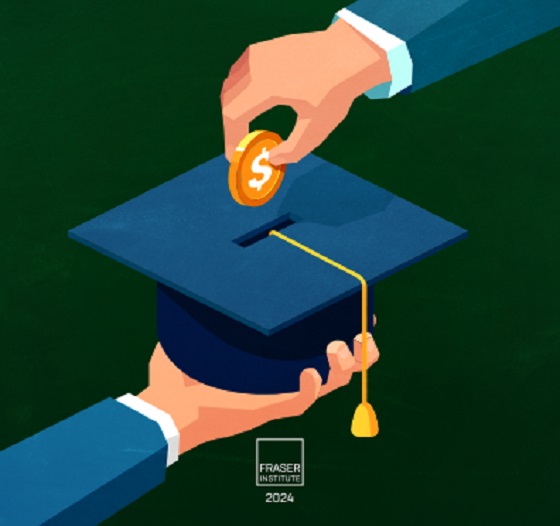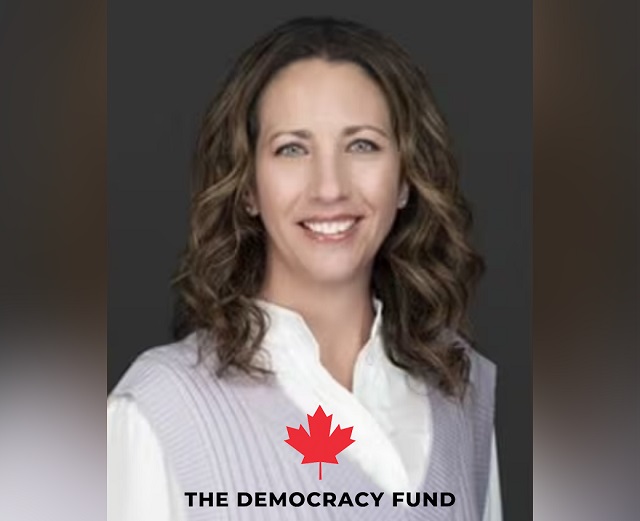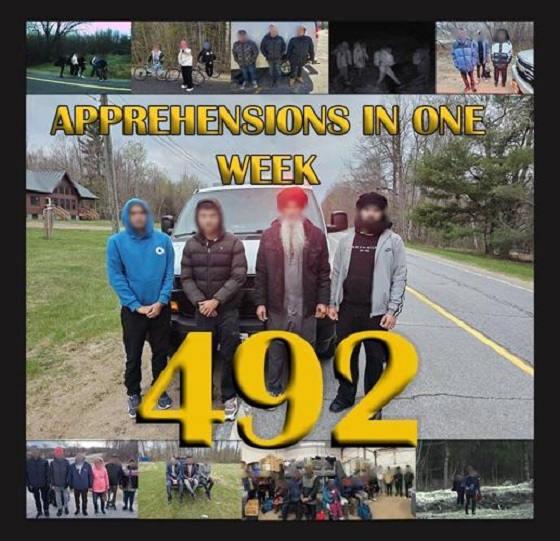Education
Higher spending on K-12 education does not result in better student outcomes

From the Fraser Institute
By Derek J. Allison
Higher levels of per-student spending do not achieve higher student scores on standardized tests, either internationally or among the provinces, finds a new report published today by the Fraser Institute, an independent, non-partisan Canadian public policy think-tank.
“Just spending more on K-12 education does not lead to better student outcomes,” said Derek J. Allison, Fraser Institute senior fellow and author of School Spending and Performance in Canada and Other High-Income Countries.
The study compares provincial per-student spending on K-12 education in 2018 (the last year of comparable data) to other high-income countries in the OECD and to performance on the OECD’s Programme for International Student Assessment (PISA).
It finds that higher per-student spending levels are not associated with stronger academic achievement. In fact, in 2018, 10 countries—or one third—of the high income OECD countries included in the analysis spent more per student than Canada but achieved significantly lower PISA scores.
Similarly, among the provinces, Saskatchewan was the highest per-student spender among the provinces but ranked 8th out of 10 on PISA scores. Manitoba was the second-highest per-student spender and recorded the lowest PISA scores nationwide. Conversely, British Columbia was the lowest spender per student in Canada and achieved the fourth-highest PISA scores.
“The evidence is clear—simply spending more on established K-12 schools without finding new and better ways to help kids learn will not improve student outcomes,” Allison said.
Provincial per-student spending (2018) compared to core PISA score
Province Spending Core PISA score
Saskatchewan Highest spender 8th
Manitoba 2nd Lowest PISA score
Alberta 3rd Highest PISA score
Nova Scotia 4th 5th
Ontario 5th 3rd
New Brunswick 6th 9th
Quebec 7th 2nd
P.E.I. 8th 7th
Newfoundland and Labrador 9th 6th
British Columbia Lowest spender 4th

Education
Schools shouldn’t sacrifice student performance to vague notions of ‘equity’

From the Fraser Institute
According to a new study published by the Fraser Institute, if Canada wants to remain competitive with emerging economies around the world, we must increase our math, science and reading scores—and not simply pursue high levels of “equity and inclusion” as the primary goal for our schools.
Indeed, highly equitable and inclusive schools—with declining PISA scores, as is currently the case in Canada—do a disservice to students and society at large.
Why? Because higher test scores translate into greater “knowledge capital”—that is, the full body of knowledge available to an economy—and boost economic growth (and, incidentally, the tax revenues that fund our schools).
Indeed, the goal should be equitable access to a quality education. And the most realistic and meaningful way to measure student progress is through PISA tests, which every three years assess the performance of 15-year-olds worldwide in core subjects of math, science and reading rather than the limited curriculum objectives used in provincial testing, which can only show progress or decline within individual school systems. In today’s world, where competition is truly global, we must know how our students and schools perform compared to their peers in other countries, especially the “Asian Tigers” of Hong Kong, Korea, Singapore and Tiawan whose rapidly growing economies have been driven by rising PISA scores.
Obviously, countries with higher test scores can teach other countries how to improve—although there are limits and some traps here. Attempting to cut and paste Singapore’s or Korea’s much more meritocratic systems of highly competitive student assessment and selection would be impractical and impolitic in Canada. Even so, policymakers should consider reinstating more meaningful meritocratic norms in Canadian schools to encourage and recognize academic achievement. Nothing succeeds like success, except recognized and rewarded success.
Closer to home, other provinces could benefit from considering why Quebec is such a stellar performer in math and why Alberta has the highest overall PISA test score average of all provinces.
But fair warning, recent attempts at school improvement in Canada show that top-down one-size-fits-all changes—including extending compulsory attendance, reducing average class size and tinkering with course content—have had little positive effect on student performance, although they may please teacher unions. If policymakers want to achieve more equitable success for more students, they should introduce more flexibility, school autonomy and choice into our top-heavy centrally regulated school systems. In this respect it may be no accident that the three highest performing, mid-spending provincial K-12 education systems (Alberta, Quebec and Ontario) offer relatively high levels of school choice, although of quite different kinds.
Equity and inclusion are noble goals, but they shouldn’t interfere with student progress. There’s too much at stake, for students and the country.
Author:
Red Deer
Expelled member of Red Deer Catholic School Board will have judicial reviews heard May 1-3

News release from The Democracy Fund
TDF and James Kitchen Defend School Board Trustee Monique LaGrange
Briefs were filed in Monique LaGrange’s case on the week of April 8, 2024.
RED DEER: The Democracy Fund (TDF) has partnered with lawyer James Kitchen to represent former school board trustee Monique LaGrange as she takes The Board of Trustees of Red Deer Catholic Separate School Division to court for kicking her off the Board because they took offence to one of Ms. LaGrange’s social media posts.
Mr. Kitchen filed two applications for judicial review in December 2023, challenging the Board’s decisions to penalize Mrs. LaGrange and disqualify her from sitting on the Board. Mr. Kitchen has now filed his briefs, which lay out in detail how the Board’s decisions are procedurally unfair and unreasonable and should be overturned by the Court of King’s Bench of Alberta.
The two judicial reviews will be heard virtually by a Red Deer judge over the course of a three-day hearing on May 1-3, 2024, starting at 2:00 PM on Wednesday, May 1. Members of the public are encouraged to attend by accessing this link.
In Alberta, judicial reviews are heard on the basis of a record of documents compiled and submitted to the Court by the decision-maker, which is supposed to include everything presented to the decision-maker at the time the decision was made. In this case, Mrs. LaGrange had submitted to the Board 33 pages of emails and letters from Albertans who supported her. At first, the Board failed to provide these supportive emails and letters to the Court, but that changed when Mr. Kitchen filed an application to compel the Board to do so. Redacted versions of these emails and letters, which are also quoted at length in the briefs, can be viewed here, starting at page 113 of 169.
Mrs. LaGrange was democratically elected to the Board in 2021. Despite this, the Board expelled her because she allegedly failed to comply with sanctions imposed on her by the Board in September 2023 for posting a meme to her Facebook account that some people found offensive. The impugned meme depicted two side-by-side photographs, one of children holding swastika flags and the other of children holding pride progress flags. The meme, which drew much support but also some disapprobation from the community, included a caption stating, “Brainwashing is brainwashing.”
The Board asked Mrs. LaGrange to apologize for the meme, which she declined to do because she believed she had done nothing wrong. In speaking to the Western Standard, Mrs. LaGrange stated, “I was elected to stand up and protect our children, and that is what I am doing.” Among other things, the Board, on September 26, 2023, ordered LaGrange to undergo sensitivity training at her own expense for allegedly breaching their code of conduct by posting the meme and to refrain from making public comments about sexual minorities in her official capacity as a Trustee.
The Board subsequently alleged Mrs. LaGrange had breached some of these sanctions and voted to disqualify Mrs. LaGrange as a trustee.
TDF and lawyer James Kitchen have chosen to defend Mrs. LaGrange to defend the free speech rights of all Canadians, especially in the context of statements made by democratically elected representatives.
To support Mrs. LaGrange, please consider making a tax-deductible donation on this page.
About The Democracy Fund:
Founded in 2021, The Democracy Fund (TDF) is a Canadian charity dedicated to constitutional rights, advancing education, and relieving poverty. TDF promotes constitutional rights through litigation and public education and supports access to justice initiatives for Canadians whose civil liberties have been infringed by government lockdowns and other public policy responses to the pandemic.
-

 Business2 days ago
Business2 days agoSaudis evict locals with lethal force to build ‘green’ city in line with globalist goals: report
-

 Business1 day ago
Business1 day agoEconomic progress stalling for Canada and other G7 countries
-

 Agriculture19 hours ago
Agriculture19 hours agoFarming group accuses Canadian gov’t of trying to blame agriculture for ‘climate change’
-

 Crime18 hours ago
Crime18 hours agoDEA doubtful of cartel order to stop fentanyl production
-

 Business2 days ago
Business2 days agoEXCLUSIVE: US Is Failing To Counter Threat Of Chinese Land Ownership, Report Finds
-

 illegal immigration13 hours ago
illegal immigration13 hours agoTerrorist watch list apprehensions at northern border continue to break records
-

 illegal immigration2 days ago
illegal immigration2 days agoTexas governor, GOP blast Biden’s latest immigration plan
-

 illegal immigration12 hours ago
illegal immigration12 hours agoNorthern border apprehensions highest in US history first 6 months of fiscal ’24









